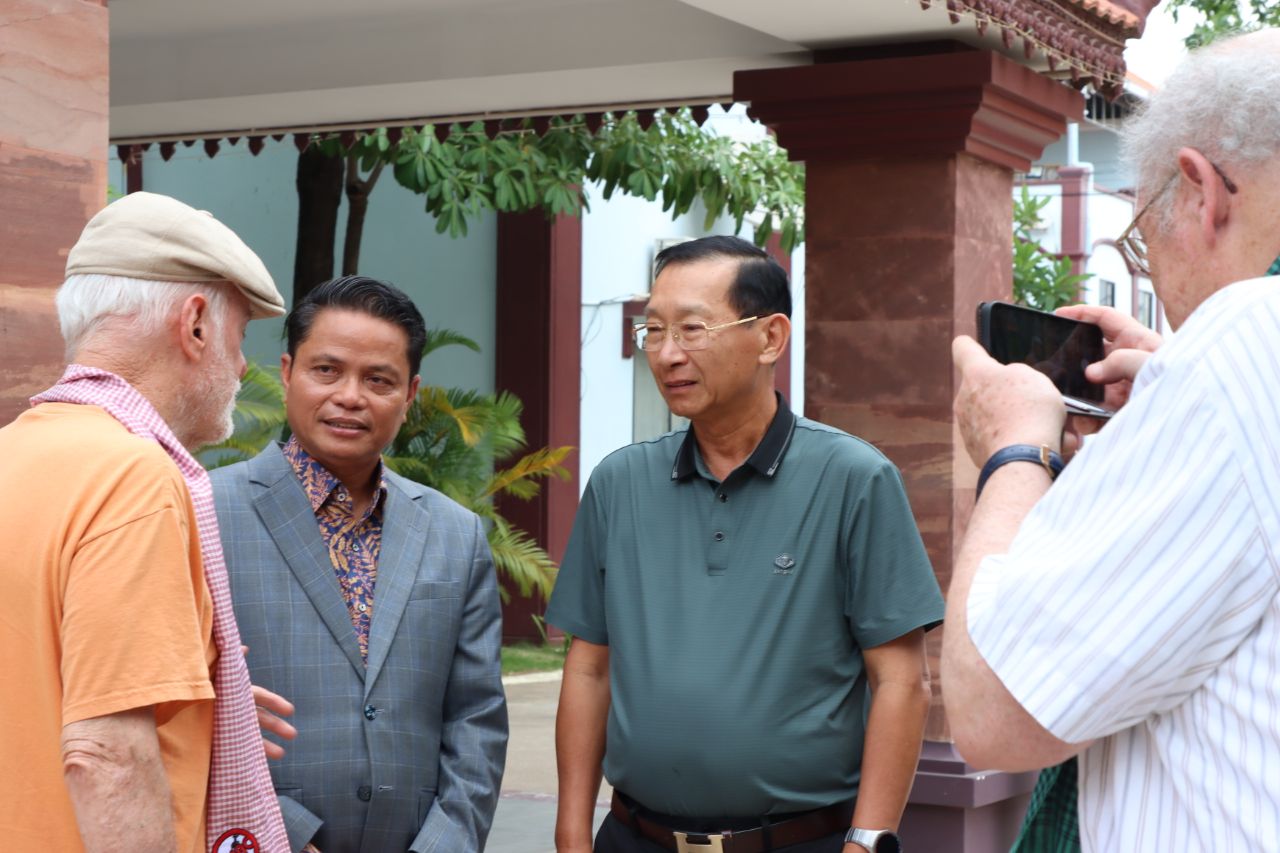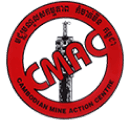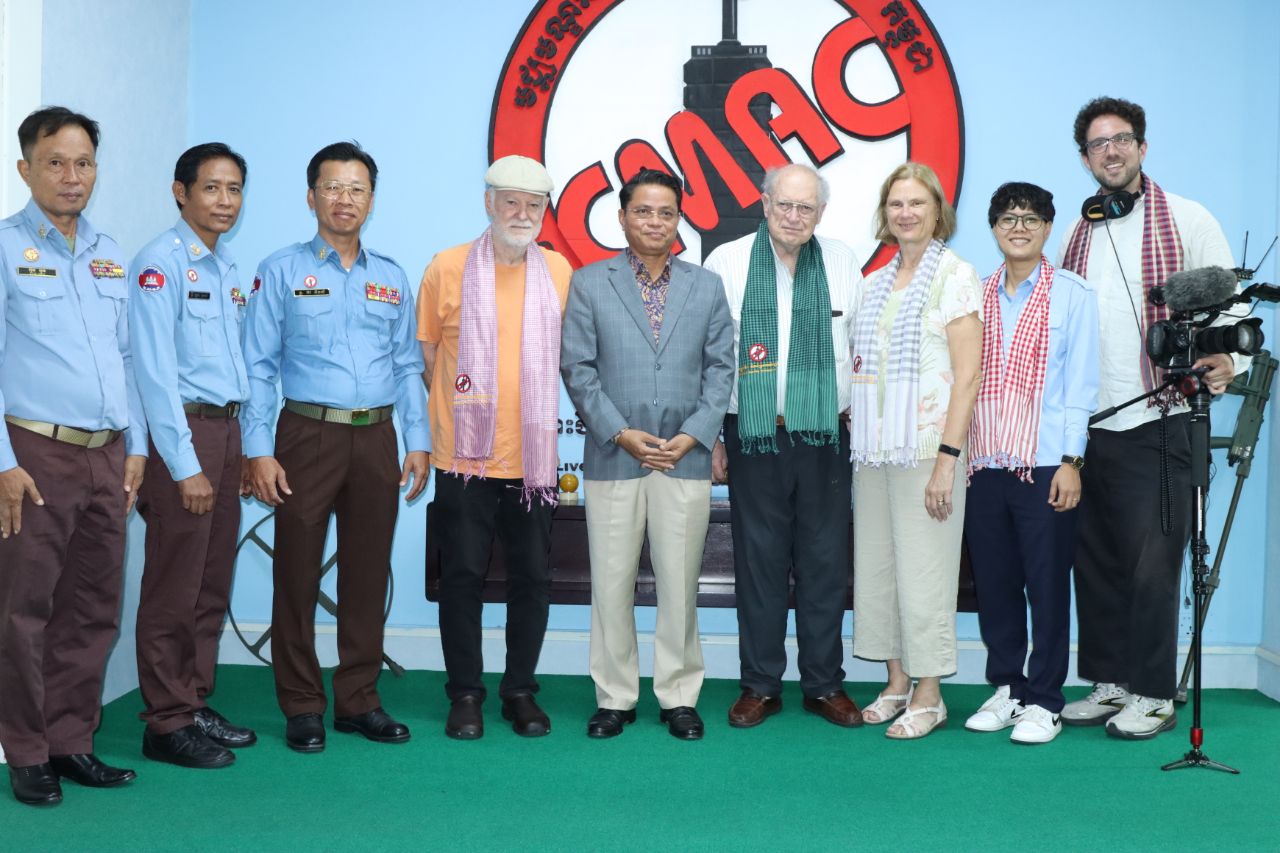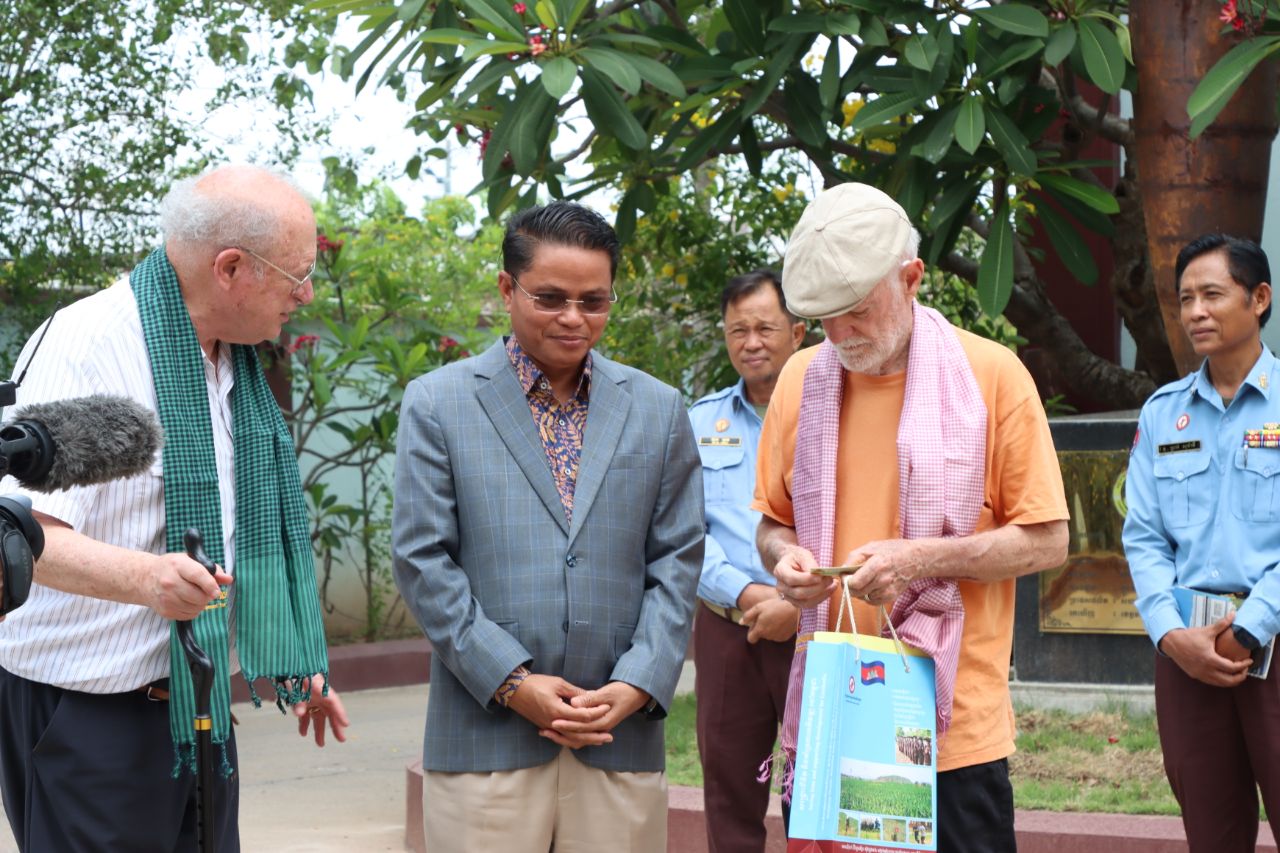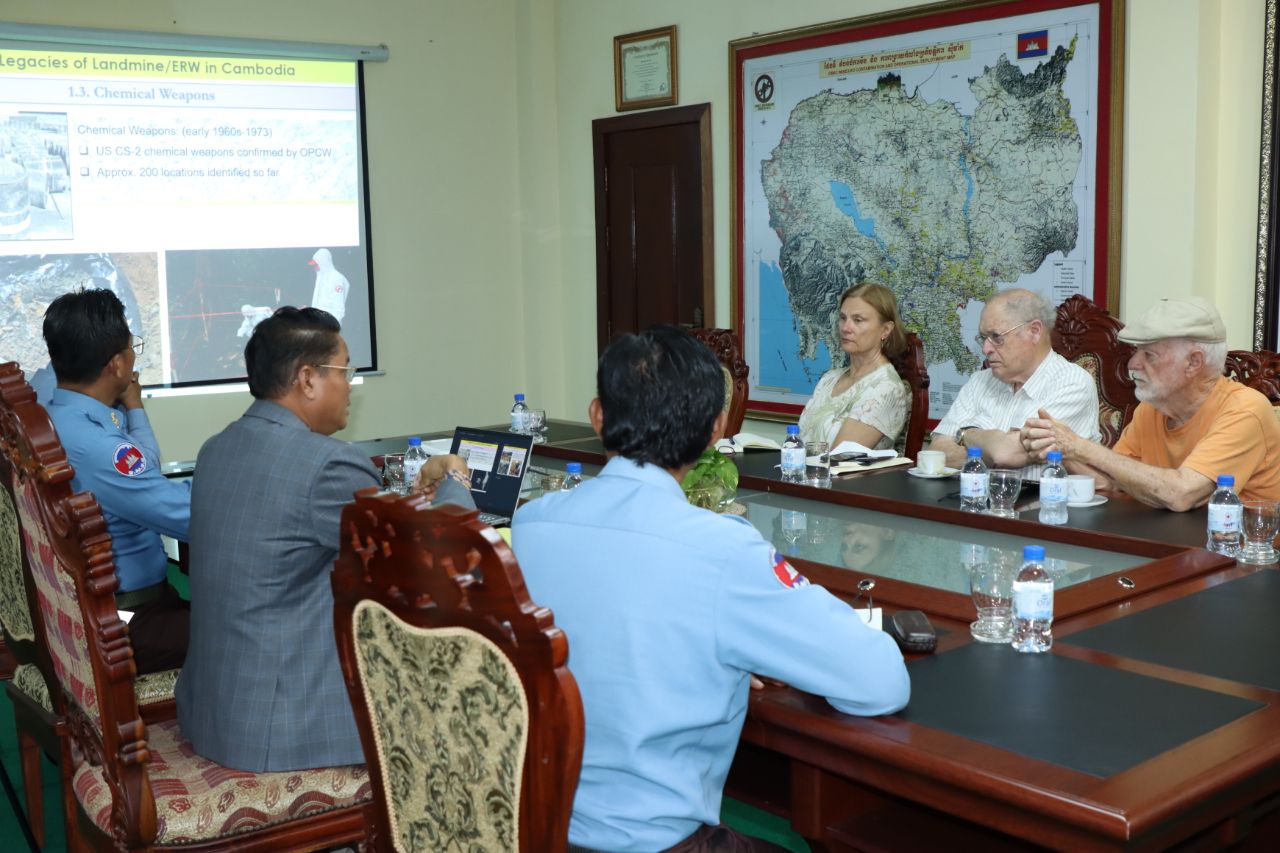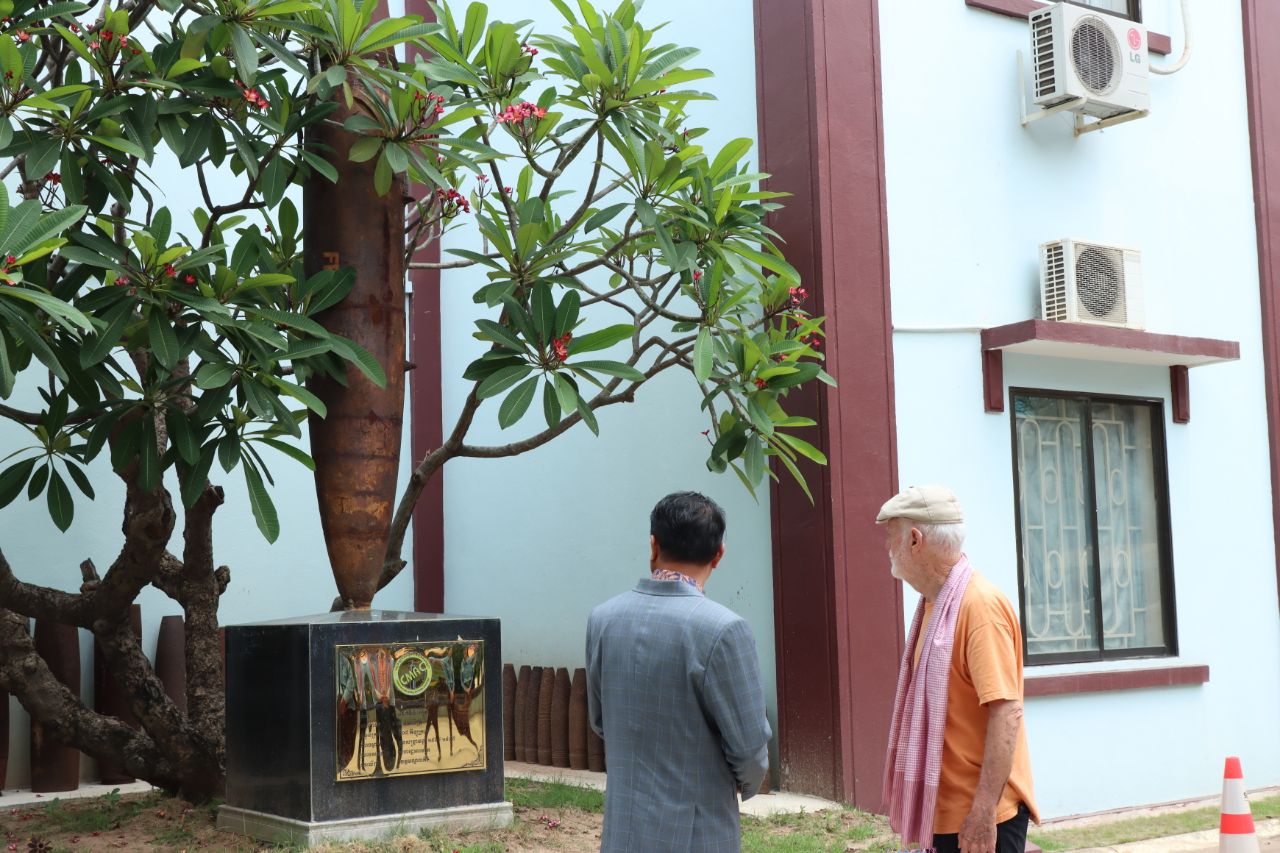3 May 2025
Meeting with the US delegation, living witness of the war in Indochina War and the bombing of Cambodia
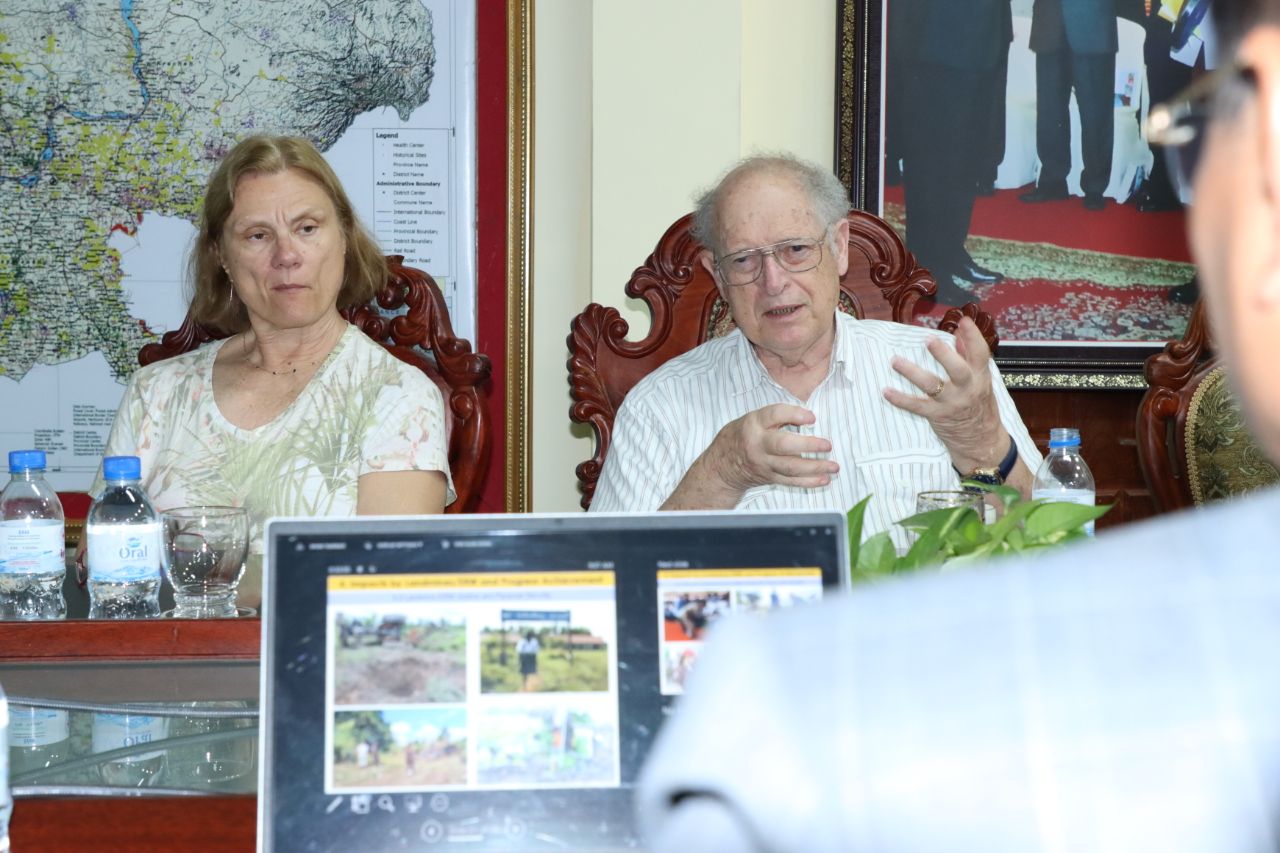
The meeting at CMAC’s headquarters on Saturday between Director General of CMAC Heng Ratana and the US delegation led by John McAuliff, Executive Director of Fund for Reconciliation and Development, and Charles Clements, a former pilot in the Vietnam War, who refused orders on April 30, 1970, when he was instructed to drop bombs in Cambodian territory. Ratana said that Clements is an important living witness of the war in Indochina and the bombing of Cambodia. In addition, he is also a key activist in the fight against the use of landmines. Clements is also a professor from Harvard University and a renowned author of the book titled “Witness to War.” He noted that the delegation shared firsthand knowledge and historical information from the US military’s involvement in the Indochina War — particularly regarding bombing campaigns that impacted Cambodia in the 1960s and 1970s. According to Ratana, the information provided could help identify previously undocumented bombed areas.
“During the meeting on Saturday, Clements shared parts of his personal history and experiences during the Vietnam War. He also indicated that he would provide Cambodia with certain information he possesses, while Cambodia already holds some data related to the investigation of cluster bombs and aerial bombings,” he said. “This exchange of testimony and supplementary information will support CMAC’s survey teams currently conducting field research in various locations. It will help them to identify targets more accurately and efficiently, save time, and potentially find eyewitnesses in those areas,” Ratana added. The research and identification of areas affected by cluster bombs and other ordnance dropped in Cambodia during the war era began last year and is expected to be completed nationwide by the end of this year.
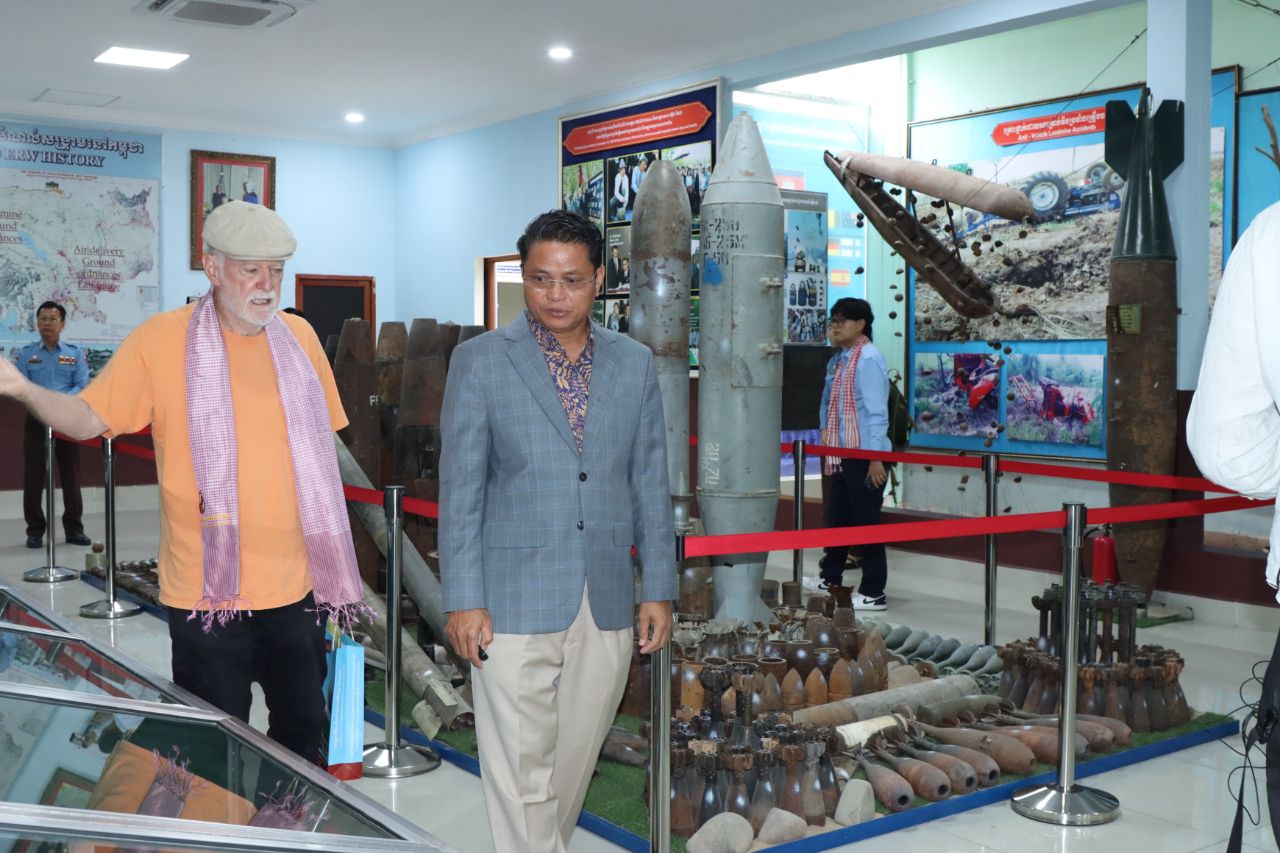
“Initially, the team had planned to finish by October, but due to some challenges, the deadline was extended to the end of the year. However, we remain hopeful that the work will be completed on time,” Ratana said. The research utilised data systems provided by the United States government, along with other relevant databases related to bombings during the Vietnam War in the 1960s and 1970s, which involved on-site investigations to collect evidence and testimonies from living witnesses at all bombing locations.
